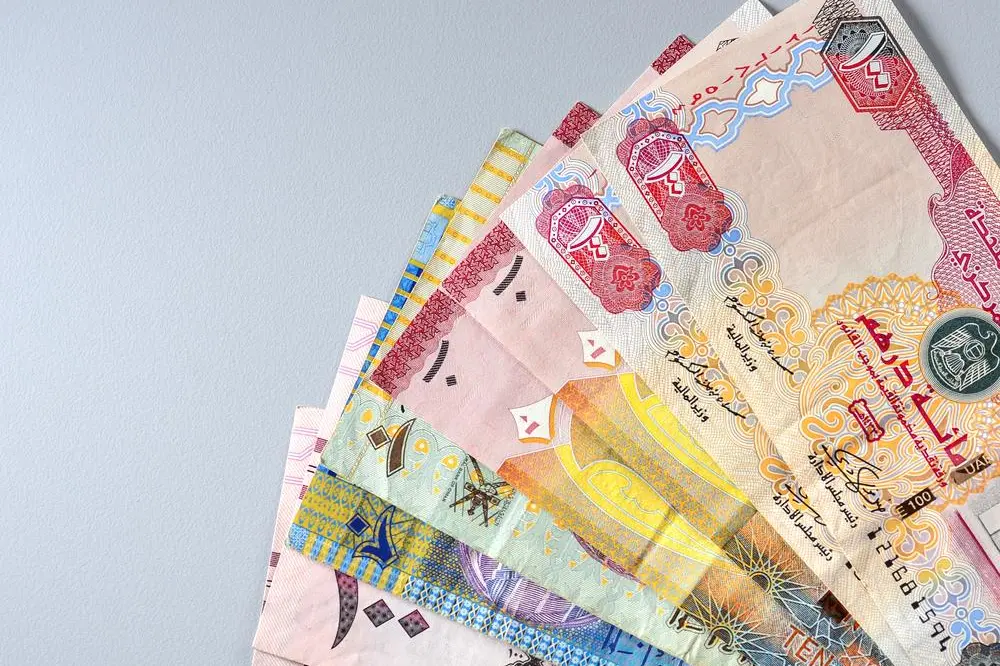PHOTO
Fitch Ratings expects to see positive real GDP growth in most GCC countries which should bring revenue opportunities for the region’s beleaguered banking sector currently reeling from the twin shocks of low oil prices and COVID-19 related economic slowdown.
“Overall, we have a stable outlook on the banking sector despite the challenging environment,” said Raymond Ramsdale, Head of Middle East Banks & Islamic Banking at a Fitch webinar titled “2021 Outlook: ME Islamic & Conventional Banks Wading Through the Coronavirus and Low Oil Prices” on Wednesday.
The ratings agency expects loan growth in the GCC to be soft, averaging between 2 and 3 percent, driven by a mix of government and government-related entities (GRE’s) and non-oil sector. However, for banks in Saudi Arabia, the average loan growth could be about 7 percent, higher than the Middle East average, on the back of growth in retail mortgages.
Banks’ profitability, which last year was impacted by lower interest rates, higher impairment charges and lower business volumes will continue to be under pressure in 2021. “In fact, loan impairment charges may be even higher this year as we expect to see loan impairment charges over gross loans to average between 1-1.5 percent; two or three times what they have historically been,” said Ramsdale.
He also expects to asset quality metrics continue to deteriorate, as “all borrowers are not going to be able to weather the storm,” especially in key non-oil sectors which have come under a lot of pressure, including real estate, contracting, tourism, transport, hospitality trade, and retail—sectors that make up quite large parts of banks’ loan books.
“I would expect, on average, impaired loans to increase between 50 and 100 bps by the end of 2021,” he added.
He said the recognition of impaired loans was also being delayed by the forbearance measures initiated by central banks like payment holidays. As these payment holidays have now been extended by most countries to middle of this year, “we're unlikely to see the true asset quality picture, until at least Q3,” he said.
In the UAE, asset quality tends to be slightly weaker in Islamic banks due to their exposure to real estate sector, which is under pressure, he added.
On the plus side, liquidity and capital ratios are adequate in the region, which are likely to be maintained. “We're expecting that that solid liquidity to be maintained. In fact, in 2020, we saw a slight improvement in liquidity… Clearly liquidity could come under pressure if the pandemic last into the medium term, but certainly, at the moment, that's not our expectation.”
The banks capital ratios too are adequate for the risks the banks are taking, he added.
According to Ramsdale, earnings and profitability pressures will drive consolidations and M&As of banks in the region now, while earlier it was about enhancing shareholder value by creating domestic champions and increasing competitive advantage. UAE and Bahrain are prime candidates to see consolidation given the number of smaller banks and weak franchises.
Sukuk outlook
Bashar Al-Natoor, Global Head of Islamic Finance at Fitch said sukuk issuances will likely accelerate in 2021 driven by larger deficits in government finances and the lower oil prices leading to funding gaps. Financial institutions too will take advantage of the present favourable conditions and low interest rate environment to diversify their source of funds.
In addition, with banks becoming more selective about lending and the extra scrutiny on credit quality, many corporates seeking project finance will look to sukuk, including innovative and diverse issuances like green, sustainable, transition and hybrid sukuk, he said.
(Reporting by Brinda Darasha; editing by Daniel Luiz)
Disclaimer: This article is provided for informational purposes only. The content does not provide tax, legal or investment advice or opinion regarding the suitability, value or profitability of any particular security, portfolio or investment strategy. Read our full disclaimer policy here.
© ZAWYA 2021




















